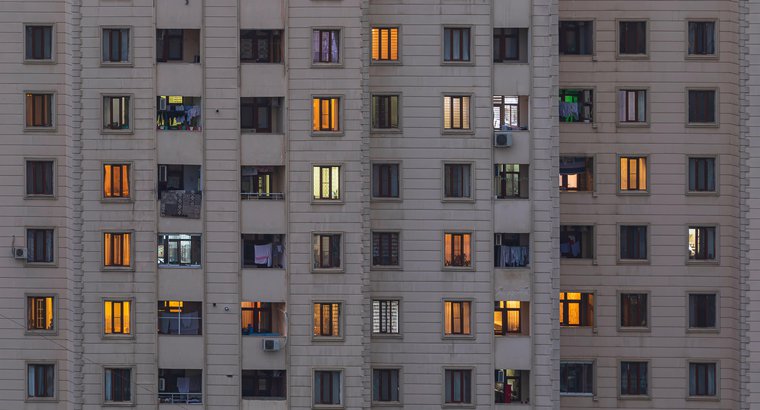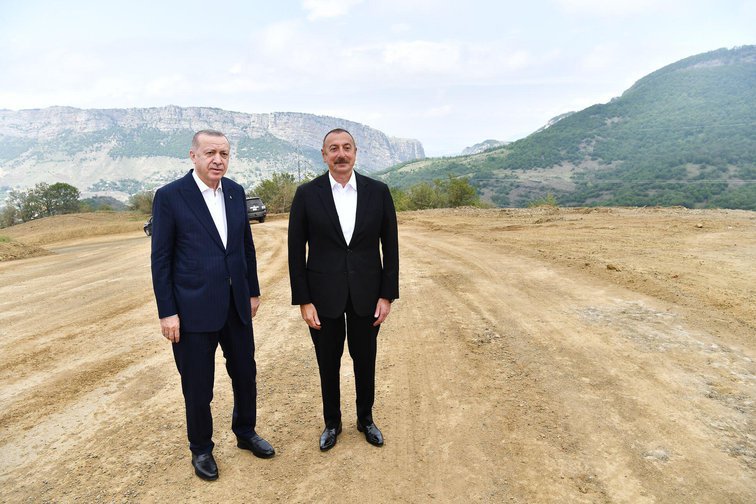LeftEast would like to gratefully acknowledge OpenDemocracy for allowing it to reprint this article by Najmin Kamilsoy.

In an online survey conducted in Azerbaijan last year, shortly after the 2020 Karabakh War, the majority of respondents, 79%, expressed optimism about the future of the country. This dominant public attitude mirrored the ruling elite’s triumphant post-war rhetoric, which promised a new socio-economic reality for Azerbaijani citizens after the retaking of key areas in Nagorno-Karabakh from Armenian control.“We have won a victory on the battlefield, in the political arena, and this victory opens a new era for our country,” asserted President Aliyev in a national address in December 2020. “This will be an era of development, security and progress.”
One year since the war ended, however, there are reasons to believe that, for many, these hopes are yet to be realised. Instead, there are signs of increased social tensions. Ordinary citizens regularly organise small-scale protests on ‘social issues’ – the demolition of homes, credit fraud, justice, inability to access pensions and delayed wages – and this hints at the causes of socio-economic dissatisfaction under Azerbaijan’s autocratic regime.
What these socially oriented protests suggest is that, in absence of institutions that could mediate citizens’ concerns, Azerbaijanis are increasingly inclined towards protesting as a means of engaging with the state
To make sense of the ongoing protest dynamics, my recent research focused on reports of protests in some of the country’s handful of independent media outlets for April, June and August 2021. In total, it appears that 122 protests were held in this period – a not insignificant number for three reasons.
First, protesting is not popular in Azerbaijan, partly due to the high chance of police intervention and ensuing repression, but also to the perceived implications for the country’s stability. For many citizens, public protest is a last resort when trying to find a solution to their problems. Second, these protests took place against the backdrop of pandemic-related restrictions on public activity, although most restrictions had been loosened before April. Third, due to pressure from the state, Azerbaijan’s independent media has limited capacity to cover protests across the country.
What these socially oriented protests suggest is that, in absence of institutions that could mediate citizens’ concerns, Azerbaijanis are increasingly inclined towards protesting as a means of engaging with the state. Pressing social problems have generally been overlooked by the country’s traditional opposition and civic groups, and, in any case, repression and restrictions have largely constrained political opposition and civil society, leaving few spaces for voicing demands.
Low protection
The data shows that issues related to living standards, administration of justice and property are the most outstanding reasons for citizen resentment. As could be expected, the largest group of protests were driven by problems concerned with livelihood – namely, welfare benefits (15%), and income and labour (10%).
Intriguingly, soldiers who fought in the Second Karabakh War have become a key indicator of Azerbaijan’s post-war disillusionment. Groups of young war veterans and their families have gathered in protest numerous times – mainly against social welfare authorities in the capital, Baku – with previously neglected requests for welfare benefits, and demands for jobs and aid to wounded soldiers. Apart from the protests, a plethora of self-recorded videos of veterans complaining about the absence of benefits have been popping up on social media.

Disabled war veterans, whether from last year’s war or the first Karabakh war in the 1990s, are among tens of thousands of Azerbaijanis who have not had their disability level properly assessed, or whose disability benefits were suspended a few months ago, giving rise to further protests from these vulnerable groups.
Justice denied
Meanwhile, nearly a quarter of this summer’s protests were provoked by Azerbaijan’s judicial system. Relatives of victims of unfair investigations and trials held multiple protests targeting various government bodies in search of justice. Since 2017, several groups of citizens have been arrested, tortured and sentenced to lengthy prison terms on serious criminal charges (including over allegations of espionage, fighting in Syria, protests) in separate cases across the country. The relatives of defendants in the ‘Terter case,’ ‘Ganja case’ and ‘Tavuz case’, as well as the human rights community, have warned that the charges against these men are unjustified.
The widespread practice of demolishing properties without reasonable compensation and the seizure of land by local authorities or state-backed private companies were behind 18% of the protests. And infrastructural problems, including the country’s severe water shortage, which harms livelihoods, particularly outside Baku, are among other sources of discontent. Protests were also held against deforestation, not only by environmental activists but also by ordinary Azerbaijanis.
How Azerbaijan’s ruling elite decide to address widespread concerns will determine what comes next for the country’s burgeoning social protests
Authoritarian neglect?
The Aliyev regime has acquired a significant level of authoritarian stability, and seems to worry little about these ongoing citizen protests. The data shows that half the protests drew no response. Police intervened in 25% of cases, while the rest were constructively engaged by the authorities they targeted.
Police intervention is highly probable when protests are addressed at Azerbaijan’s central government. Individual government ministries, however, are more sensitive towards protests, and typically attempt to invite protesters to a meeting – although this does not guarantee solutions to issues. In the meantime, most protests outside the capital have seen no response from the state at all.
Several factors explain this relaxed attitude. While Azerbaijan’s ruling elite has scaled up efforts to project a reformist image internally and externally, collective political action against the government has been completely curbed. The last sanctioned opposition rally, attracting nearly 20,000, took place in January 2019. Several political demonstration attempts have been violently quashed and repressed since then. It seems fair to assume that the regime does not foresee that growing social concerns will develop into mass political mobilisation, particularly in light of COVID-19 regulations, and given that Azerbaijan’s opposition forces have been either marginalised or coopted.
The pattern of police responses to the protests shows a tendency to either tolerate or neglect issue-based protests as long as they are not targeted at President Aliyev. The president’s legitimacy is strong in the wake of the victory over Armenia, and most citizens regard him as the only power that can address their concerns. In the long run, however, this could become a problem, if he fails to solve issues.

Escalation on the horizon
The discontent of ordinary citizens, primarily over deteriorating living standards, is likely to grow given the recent economic developments. Last year, COVID-19 related lockdowns and declining global oil prices – dubbed the dual shock – shattered the country’s oil-driven economy and had adverse effects on jobs, incomes and informal safety nets for the majority of the population. Many, including middle-income earners, found themselves at risk of poverty. Although the government was quick to implement a social assistance programme, the amount of the payments was quite limited, while the sizeable segment of the population that worked in the informal sector received nothing.
A dramatic increase in the cost of living in recent months has further fuelled Azerbaijanis’ economic insecurity. Official statistics confirm that, from January to September 2021, the inflation rate had risen to 5.2% in comparison to the same period in 2020. As observed by experts, the costs of some staple goods have risen significantly in the past year. Additionally, the authorities raised the price of gas and electricity in September – triggering further rises in production costs for manufacturing.
In response to growing discontent, and in a move to maintain his popularity, President Aliyev has instructed the government to increase salaries, pensions and social benefits for vulnerable groups from 2022. The decree is assumed to increase the monthly wages and welfare benefits of 1.8 million citizens by between 20% and 40%. However, it is unlikely to alleviate the growing disparity between the population’s income and rising living costs, according to independent media analyses and even statements by members of the parliament.
How Azerbaijan’s ruling elite decide to address the widespread concerns over issues ranging from the mismanagement of the social welfare system to high unemployment and the poorly functioning justice system – including on property and labour rights – will determine what comes next for the country’s burgeoning social protests.
